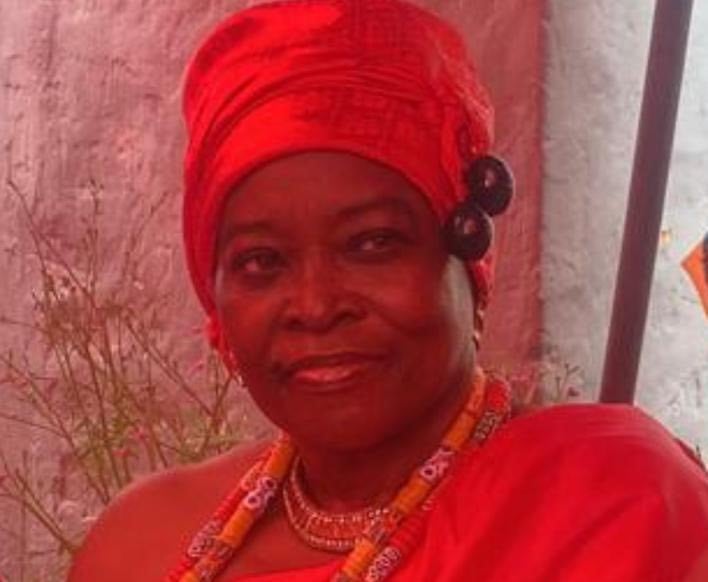The vibrant installation of Her Excellency Fidelia Graand-Galon, the Suriname Ambassador to Ghana, as the Development Queen Mother (Noryaa Manye) of the Otublohum Traditional Area in Accra, Ghana, on June 20, 2025, resonated with deep cultural significance and historical resonance. The ceremony, presided over by Tetebotan Nii Dodoo Nsaki II, the Paramount Chief of Otublohum, served as a powerful symbol of unity and reconnection between Ghana and Suriname, two nations intertwined by a shared African heritage. The event attracted a diverse assembly of dignitaries, including traditional leaders, diplomats, members of the Jamaican community in Ghana, and representatives of the African diaspora, all bearing witness to this momentous occasion. Ambassador Graand-Galon’s ascension to the role of Noryaa Manye underscored the enduring bonds between Africa and its diaspora, paving the way for future collaborations centered on shared identity, history, and mutual development.
Ambassador Graand-Galon’s journey to this significant role began in 1997 when she first arrived in Ghana, driven by a profound desire to explore her ancestral roots and understand the intricacies of the chieftaincy system. Her installation as Noryaa Manye represented the culmination of a two-decade-long personal quest to reconnect with her African heritage. In her acceptance speech, she expressed deep gratitude for the honor bestowed upon her and reflected on the enduring cultural ties between Ghana and Suriname, particularly with the Ga people. Her words resonated with a sense of homecoming and a recognition of the enduring legacy of African traditions and customs that had traversed the Atlantic and taken root in Suriname. This cultural continuity, she emphasized, stood as a testament to the resilience and strength of African culture, surviving and thriving despite the disruptive forces of colonialism and the transatlantic slave trade.
The Ambassador highlighted the striking cultural and linguistic parallels between the Ga people of Ghana and the people of Suriname, citing the shared use of the word “Agoo,” a term used to request permission, as a poignant example of their common ancestry. These linguistic and cultural echoes served as tangible reminders of the historical connections between the two nations, echoing across time and distance. Ambassador Graand-Galon’s observations underscored the importance of recognizing and preserving these shared cultural threads as a means of strengthening the bonds between Africa and its diaspora. Her personal journey of rediscovering her roots served as an inspiration to others seeking to reconnect with their African heritage.
Ambassador Graand-Galon’s address also delved into the profound impact of colonialism on African identity, lamenting the systemic suppression of African languages and traditions. She powerfully asserted her African identity, emphasizing the importance of reclaiming and celebrating one’s heritage. She advocated for the revival of African languages and cultural practices, highlighting the importance of language as a cornerstone of cultural preservation. Her own commitment to learning local Ghanaian languages served as a testament to her dedication to embracing and promoting African culture. Her call to action resonated with the broader movement to reclaim African languages and traditions, underscoring the vital role of language in preserving cultural identity and fostering intergenerational connections.
As the newly installed Noryaa Manye, Ambassador Graand-Galon pledged her unwavering commitment to the development of the Otublohum community. Her vow to dedicate herself to the advancement of the community reflected a deep sense of responsibility and a desire to make a tangible difference in the lives of the people she now served. She recognized the magnitude of the task ahead but expressed confidence that through unity and collaboration, significant progress could be achieved. Her commitment to community development served as an embodiment of the spirit of service and leadership inherent in the role of Noryaa Manye.
Furthermore, Ambassador Graand-Galon fervently appealed for stronger collaboration and unity between Africans on the continent and those in the diaspora. She emphasized the shared heritage and interconnectedness of all people of African descent, stressing the importance of mutual support and understanding. Her call for unity resonated with the broader Pan-Africanist vision of a unified and empowered African diaspora. This vision, she articulated, held the key to unlocking the vast potential of the African continent and its people, both at home and abroad. The installation of Ambassador Graand-Galon as Noryaa Manye served as a powerful symbol of this unity, bridging the geographical divide and forging new pathways for collaboration and mutual support. Her leadership promised to further strengthen the bonds between Africa and its diaspora, fostering a shared sense of purpose and paving the way for a brighter future.














